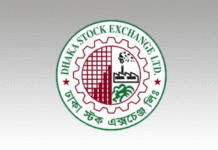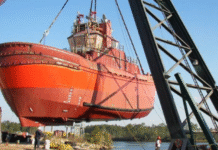Will set up three textile, apparel units

Maksons Group, a local textile miller, is going to set up three industrial units at the Bangabandhu Sheikh Mujib Shilpa Nagar (BSMSN) in Mirsarai at a combined investment of $111 million.
Mohammad Ali Khokon, managing director of Maksons Group and three other entities under the group, signed a land-lease agreement with the Bangladesh Economic Zones Authority (Beza) at the Pan Pacific Sonargaon Hotel in Dhaka yesterday to establish the units on 30 acres of land by 2022.
Metro Spinning Ltd will invest $40 million and create jobs for 1,200 people.
Maksons Spinning Mills Ltd will invest $30 million to create 800 jobs and the second unit of the factory will invest $41 million, Khokon said at the signing ceremony.
The group will produce fabric and export-oriented garment items at the proposed industrial units.
Maksons Group, which has been in textile and spinning business for more than 35 years, exported goods worth $77 million last year.
In the next year, the group would be able to export goods worth $100 million despite the fallouts of the Covid-19 as the volume of export orders, especially for knitwear items, has increased at his factories.
In the first phase, the group plans to earn $200 million in exports from the proposed units. It will add another $300 million in the second phase.
Of the $34 billion garment export from Bangladesh, $23 billion is supported by local textile millers and spinners by way of supplying raw materials, said Khokon, also the president of the Bangladesh Textile Mills Association.
Currently, local spinners can supply nearly 95 per cent of raw materials to the knitwear sector, and local weavers can meet 40 per cent demand of the woven sector.
This means Bangladesh depends on imports for 60 per cent raw materials, or 600 crore metres of fabrics for the export-oriented garment sector, costing $8 billion a year.
“So, the sector has a room for an investment of Tk 1 lakh crore to serve the thriving garment sector. If local investors can invest properly, Bangladesh would be able to export $100 billion worth of garment items a year very soon,” Khokon said.
Local millers can supply 70 per cent of raw materials to the promising denim sector, he said.
Khokon praised the government’s stimulus packages, saying industries are rebounding from losses caused by the pandemic thanks to the support.
He reached his $30 million export order target in the last three months as the recovery of businesses has started.
The entrepreneur said he supported the government initiative of not allowing utility services to the industries outside of the economic zones.
He called the procedures of the Duty Exemption and Drawback Office complex that create troubles for businesses.
He suggested the Beza ease rules in the economic zones so that local and foreign investors can come and invest.
Bangladesh has created a market for chemicals worth $2 billion on the back of the textile and garment industries, he said.
Paban Chowdhury, executive chairman of the Beza, said his office has launched “One Stop Service Centre” to help investors receive services quickly.
The Beza has adopted a zero-tolerance policy in dealing with corruption, he said.
The agency is developing the BSMSN on 30,000 acres of land as part of its plan to construct 100 economic zones across the country by 2030.
Investment proposals worth $20 billion have already been approved at the BSMSN that might create jobs for 10 lakh people, Chowdhury added.









